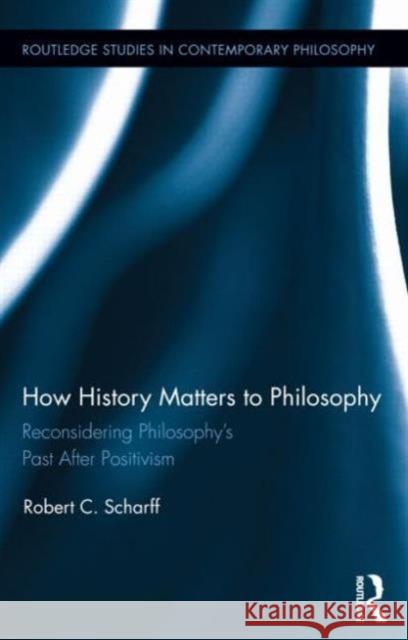How History Matters to Philosophy: Reconsidering Philosophy's Past After Positivism » książka
How History Matters to Philosophy: Reconsidering Philosophy's Past After Positivism
ISBN-13: 9780415709224 / Angielski / Twarda / 2014 / 346 str.
How History Matters to Philosophy: Reconsidering Philosophy's Past After Positivism
ISBN-13: 9780415709224 / Angielski / Twarda / 2014 / 346 str.
(netto: 699,68 VAT: 5%)
Najniższa cena z 30 dni: 705,23
ok. 22 dni roboczych.
Darmowa dostawa!
In recent decades, widespread rejection of positivism s notorious hostility toward the philosophical tradition has led to renewed debate about the real relationship of philosophy to its history. "How History Matters to Philosophy" takes a fresh look at this debate. Current discussion usually starts with the question of whether philosophy s past "should" matter, but Scharff argues that the very existence of the debate itself demonstrates that it already "does" matter. After an introductory review of the recent literature, he develops his case in two parts. In Part One, he shows how history actually matters for even Plato s Socrates, Descartes, and Comte, in spite of their apparent promotion of conspicuously ahistorical Platonic, Cartesian, and Positivistic ideals. In Part Two, Scharff argues that the real issue is not whether history matters; rather it is that we already have a history, a very distinctive and unavoidable inheritance, which paradoxically teaches us that history s mattering is merely optional. Through interpretations of Dilthey, Nietzsche, and Heidegger, he describes what thinking in a historically determinate way actually involves, and he considers how to avoid the denial of this condition that our own philosophical inheritance still seems to expect of us. In a brief conclusion, Scharff explains how this book should be read as part of his own effort to acknowledge this condition rather than deny it."











